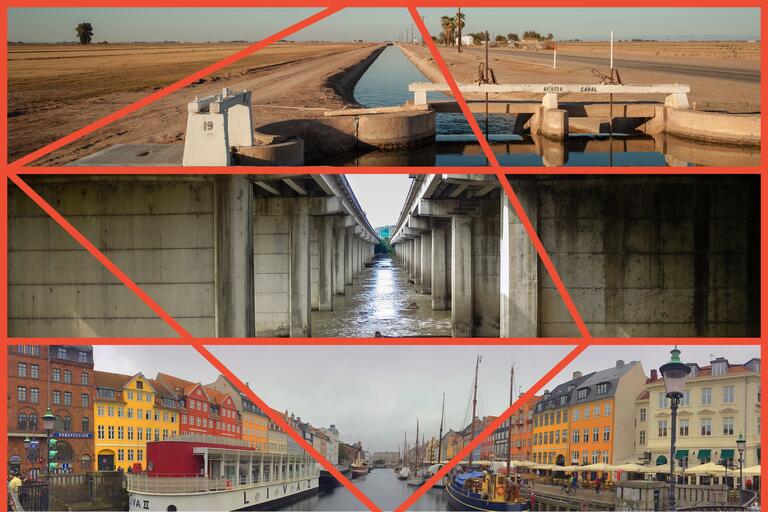Summer Institute for k-12 Teachers
June 23 - 26, 2025
"...infrastructures are built networks that facilitate the flow of goods, people, or ideas and allow for their exchange over space."
(Larkin 2013, as quoted in Appel, Anand, and Gupta 2018)
"...infrastructures often quite literally connect and constitute boundaries between public and private, boundaries that people sometimes reject or attempt to transgress. Governance, it turns out, does not take place at a distance but through the intimacy and proximity of toilets, pipes, and potholed roads."
(Appel, Anand, and Gupta 2018)
Wherever you are right now, as you read this webpage, you are almost certainly interacting with multiple infrastructures. These networks for transportation, communication, and exchange can fade into the background of our day-to-day experiences. They catch our attention when they malfunction, or when our goals run at cross purposes to the pathways and behaviors they were built to facilitate. As the passage above suggests, this daily interaction with infrastructure is the primary way most people experience their government.
What can we learn about present and past societies by examining their infrastructures? What does infrastructure tell us about imagined or intended futures? How does it change the society that creates and maintains it? What is the relationship between infrastructure and environment, and what happens when aspects of that environment change? Why do societies maintain and adapt some infrastructures, while abandoning others?
This 4-day summer institute will explore these and other questions, considering infrastructures across place and time. It will include presentations by scholars, interactive activities, discussions, and two field trips to East Bay Municipal Utility District (EBMUD) sites.
This institute is open to k-12 teachers in any discipline. It will be especially relevant for teachers of geography, global studies, government/AP Comparative Government, economics and modern world history. It will also be useful for those who teach environmental science or engineering, who wish to incorporate a social science/policy angle in their courses. ELA, World Language, and visual/film arts teachers may find it helpful in thinking/teaching about how built environments are portrayed and used symbolically in literature and the arts.
This FREE program will take place in person. Lunch will be provided. Space is limited to 25 people on a first-come, first-served basis.
Professional development credit is available upon request during the registration process.

